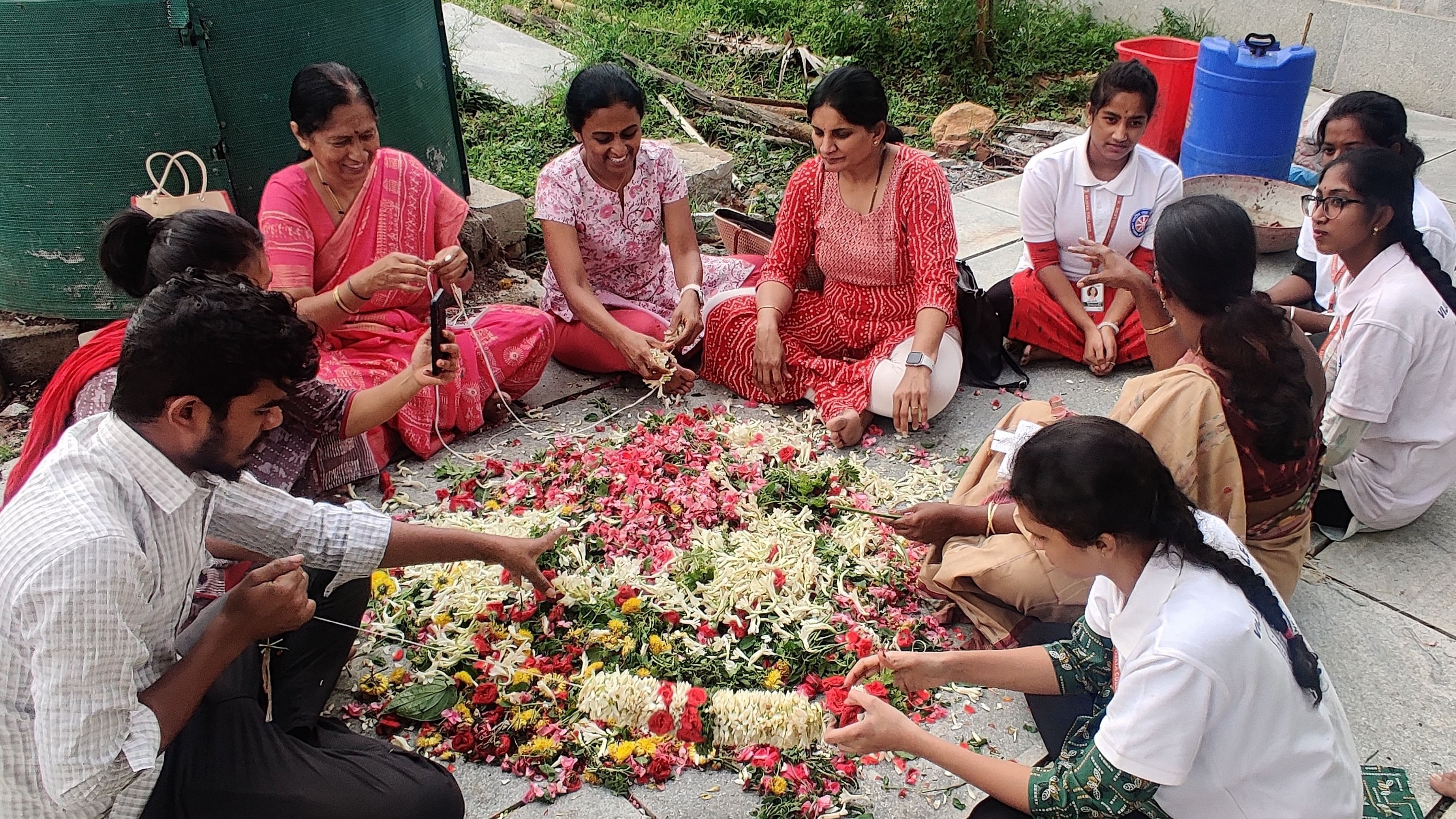
Volunteers destring flowers from garlands at the Nageshvara Temple in Begur.
A volunteer-driven initiative is trying to prevent waste generated at city temples from going to landfills. Waste segregation, composting, and cutting down on single use plastic are the focus areas.
Solid Waste Management Roundtable (SWMRT) started the ‘Green Temple Initiative’ in January. Neighbourhood groups, NGOs, temple visitors, college students and corporate professionals have been driving it since with SWMRT’s guidance and BBMP’s support.
The initiative is currently underway in four locations — Banashankari Devi Temple in Banashankari, Kadu Malleshwara Temple in Malleshwaram, Ragigudda Sree Prasanna Anjaneyaswamy Temple in Jayanagar, and Nageshvara Temple in Begur.
Flowers and leaves from garlands, milk pouches, plastic wrappers from incense and camphor packaging, paper plates used for prasadam, and peels of fruits, husk of coconuts, and mud lamps left behind after puja form a bulk of the waste in temples.
The volunteers ensure the waste is segregated correctly — wet waste in organic composters, flowers in mesh composters, dry waste in dry waste bins and, wherever specified, coconut shells, donne (leaf bowls) and lamps in separate drums. They talk to temple staff and visitors in this regard, put up banners, and monitor waste-collection points and segregate the mixed waste when required.
The practice is quite nuanced. In the case of garlands and strings of flowers, flowers have to be first separated from threads. “If we dump threads in a composter, one, they clump up, and two, they do not decompose. They have to go in dry waste bins,” says Ashok Urs, a businessman. He is part of a collective that is driving the initiative at the Kadu Malleshwara Temple. In a bid to make the temple zero-waste, the collective is making a gabion structure out of mud lamps that devotees offer. “We are also thinking about how we can repurpose framed photos of gods and goddesses that people leave behind when they move houses and cities,” he says.
A part of the lemon and jaggery waste generated at the Banashankari temple is sent to SwachaGraha Kalika Kendra in HSR Layout to produce bio enzymes. “Some farmers say they use salt during coconut cultivation. So we are collecting salt that is offered here, to give it to coconut farmers,” says Aishwarya Nair, programme assistant and volunteer coordinator, SWMRT.
The volunteers also screen temple-goers at the gate to see that they are not bringing single-use disposables like plastic water bottles. “A big challenge has been to convince vendors outside the temple to stop giving plastic bags and paper plates. At the Banashankari temple, a few have now started giving plastic baskets and steel plates, which temple-goers are expected to return. But sometimes, we have had to rope in BBMP marshals and penalise the defaulters,” adds Aishwarya.
Write to info@swmrt.com to volunteer